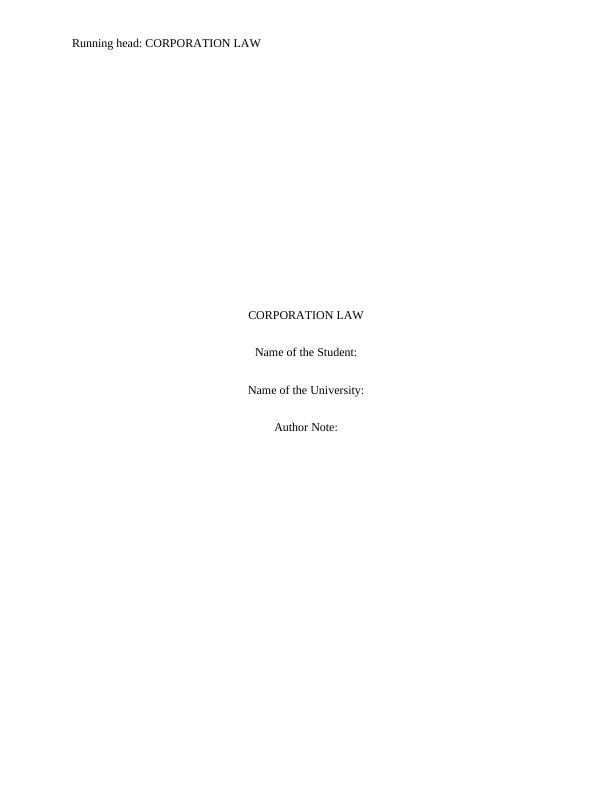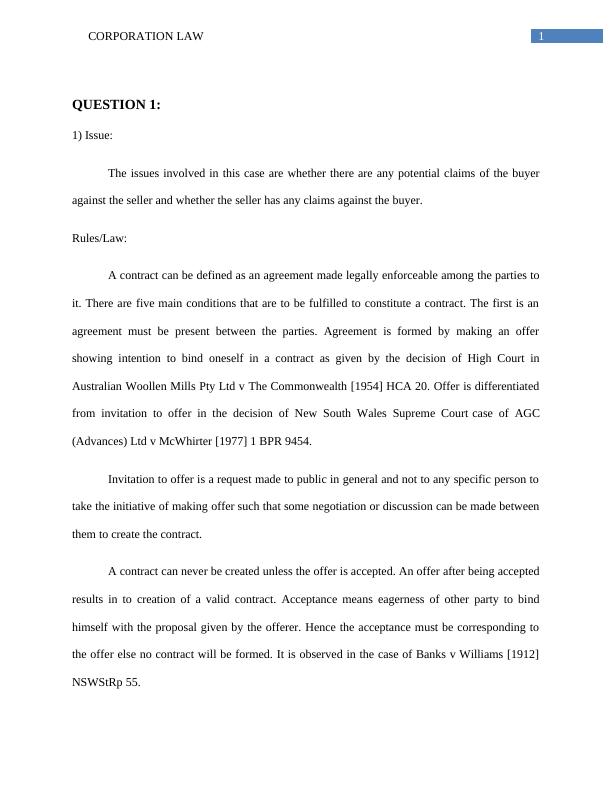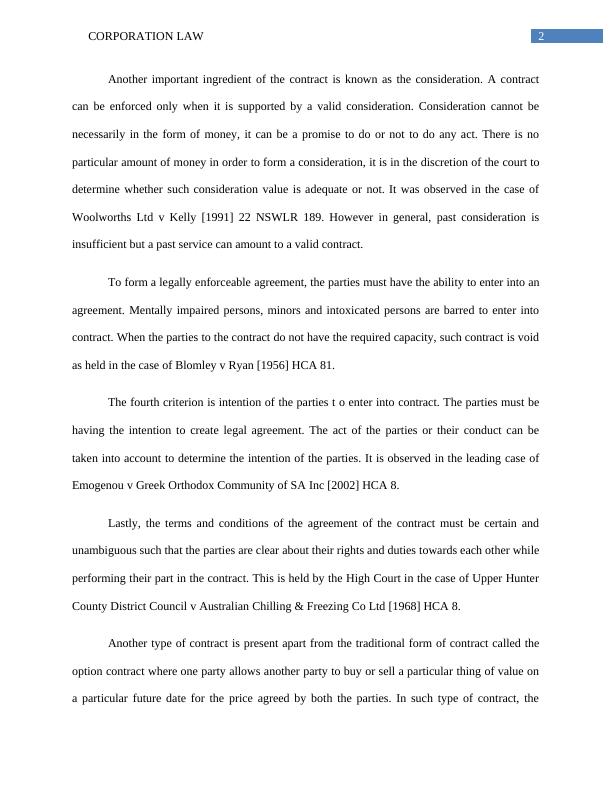Corporation Law
Answering two questions related to Contract Law, with specific word limits for each question. Submission via Moodle by the end of week 9.
8 Pages1797 Words66 Views
Added on 2023-03-20
About This Document
This document provides a comprehensive study material on Corporation Law, focusing on the rules and laws related to contracts, consideration, and other legal issues. It discusses the elements of a valid contract, the concept of an option contract, and the potential claims and remedies in case of a breach of contract. The document also covers various legal terms such as chattel mortgage, perfection, fixtures, Torrens system of registration for land rights and interests, and leasehold.
Corporation Law
Answering two questions related to Contract Law, with specific word limits for each question. Submission via Moodle by the end of week 9.
Added on 2023-03-20
ShareRelated Documents
End of preview
Want to access all the pages? Upload your documents or become a member.
Corporation Law
|8
|1948
|39
Case Study Analysis
|8
|1837
|322
Case Study Analysis on Valid Contract and Chattel Mortgage
|6
|1115
|454
Case Study Analysis
|8
|1909
|23
Case Study on Event Management and Rigby Corporate Functions Ltd.
|7
|1849
|34
Contract Law: Validity, Mistake, and Breach of Contract
|11
|2544
|345



